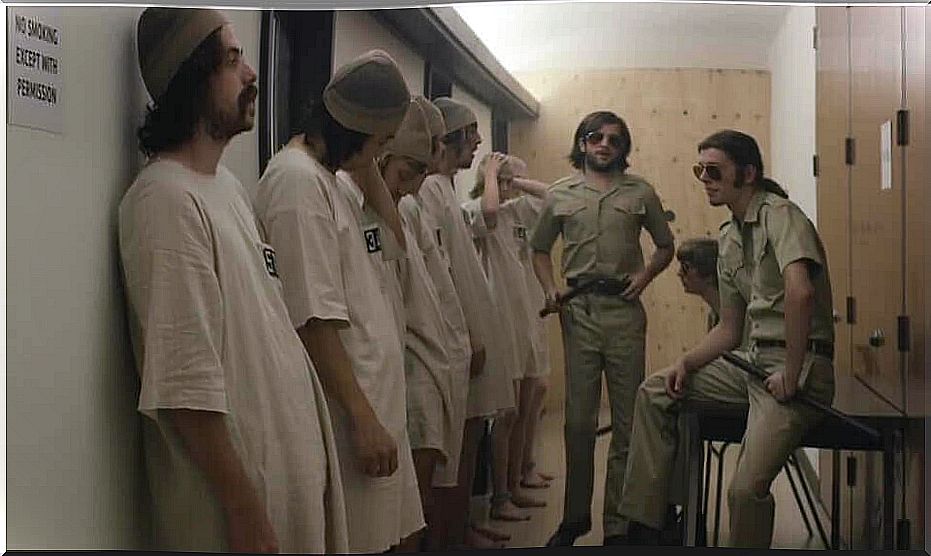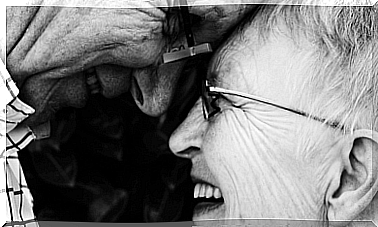The Experience: Human Nature
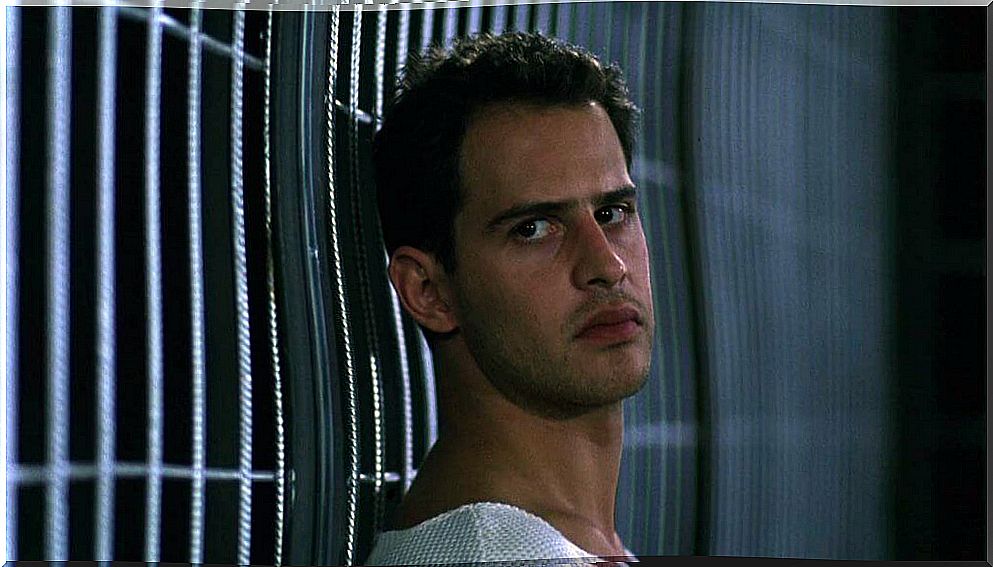
The Experience is a 2001 German film directed by Oliver Hirschbiegel; it is based on the work The black box which, in turn, was inspired by the real experiment carried out at Standford in 1971. This experiment has been called into question countless times and, even if the film s ‘takes away enough from what really happened, it makes us wonder what human nature really is: are we good or bad? Are there good and bad people? It is undoubtedly a film where philosophy, ethics, morals, sociology and psychology mingle.
The Experience begins by introducing us to Tarek Fahd, a taxi driver with economic problems who decides to earn extra money by participating in an experience. In addition to the money he will earn from this experience, he decides to collaborate with a newspaper he worked for in the past and to film everything that happens during the experience. Money will be what prompts participants to collaborate like guinea pigs in an experience that ultimately destroys their lives.
Participants have very different lives: a taxi driver, an airline employee, a senior executive, an Elvis impersonator, etc. They are all looking for a new experience and, above all, for economic compensation. These participants will be subjected to various psychological tests and numerous interviews. After that, a role will be assigned to them: that of prisoner or that of guard. We see that some participants display insecurities, while others have great self-confidence… All of this will help the doctors in charge of the experiment to assign them a role.
None of the participants have been in prison in their lifetime. None appear to be out of “normality”; they all have a profession, a family… Ultimately, a perfectly common life. When they get to know each other in the waiting room, before knowing what role they have been assigned, they all seem to have a pleasant conversation and are happy to know each other. However, what at first seemed like a simple game will eventually turn into a real nightmare that will make us wonder about human nature.
The Stanford Prison Experience
The experiment on which the film is based was carried out at Stanford University (United States) in 1971 by Professor Zimbardo; 24 psychologically stable students took part. However, it did not take long for the experience to get out of hand as the people who participated in it immersed themselves completely in the roles they had been assigned.
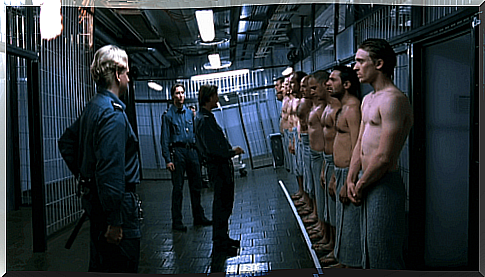
Many of the participants suffered serious psychological damage. Those who had acted as prisoners then showed great resignation and submission, while the guards began to abuse their power and apply truly cruel punishments. The film partially shows us this experience but has some differences:
- The roles assigned in the original experiment were random, whereas in the film they are assigned after having subjected participants to a series of tests.
- In the Stanford experiment, prisoners were arrested as if they had committed an actual crime. This does not happen in the film: they are simply assigned their role after accepting their participation.
- In the film, the only security we observe is that of the surveillance cameras and the three doctors who supervise the experiment without intervening. At Stanford, Zimbardo himself participated as a superintendent and two real policemen oversaw the experiment.
Experience and social roles
The Experience transports us to a fictional prison, the places are really cold, there is hardly any warm color in the whole film and even before the start of the experience. The 20 participants will have to spend 14 days in a fictitious prison, the guards are not given any orders other than a small prison rule, and will be able to act as they see fit when a prisoner does not obey them, even if they are warned that they must not resort to violence.
Prisoners, on the contrary, are totally stripped of their identity; they go from a name to a simple number, will have to take off their underwear and wear only a very thin uniform that contrasts with that of the guards. At first, many take it lightly, think it’s just a game, and after a few days they will be able to return home to resume their normal lives (with a few extra bucks).
However, from the moment they are assigned the roles, we see that some participants take the experience very seriously, becoming more submissive if they are prisoners or more aggressive and bossy if they are guardians. The film acquires an increasingly dramatic and claustrophobic tone, showing the sadism, abuse of power of the guards and the suffering of the prisoners.
Some prisoners find it more difficult to fulfill their role; however, the keepers seem to be quite comfortable with theirs. The majority of the jailers are fathers of families, have a good job… but when faced with a situation of power, they act in a way that they never could have imagined, by arriving at the most extreme violence and by subjecting them. prisoners to atrocious practices.
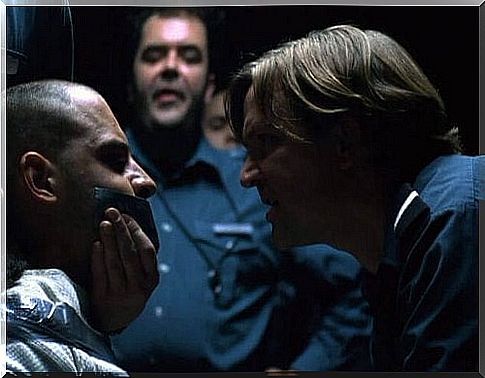
The more days go by, the more complicated the situation becomes; abuses are on the increase and the suffering of prisoners continues to increase. In a way, Tarek creates a few situations when trying to capture a good story for his journal, although we see that delusions and possible conspiracy ideas will take hold of everyone involved, causing them to act in unexpected ways.
One of the characters that grabs our attention the most is Berus, a man who works for an airline, something that makes us think he’s psychologically stable. However, he will be the cruelest of keepers; he will take on the role of the guardian’s leader, a leadership that others will accept without complaining.
Experience presents us with a society deprived of freedoms where people are reduced to numbers, causing them to lose their identity; they are assigned a role and therefore people will act on that role, even knowing that nothing is real. Participants end up imbibing this role.
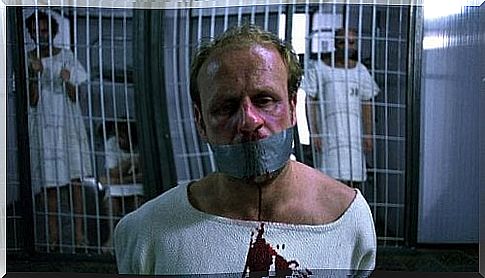
Even though millions of possible answers spring to mind and even though we know each other perfectly, we cannot predict how we will react when faced with a situation that is totally out of control or out of everyday life. It seems that we tend to separate people into two categories: the good and the bad. Also, we probably don’t think of ourselves as bad people. But do we really know our nature?
The film and the experience make us wonder if we are really free, if we have this free will that we are so often told in philosophy, if we know human nature… Do we act with total freedom? We may simply be victims of a role that has been assigned to us and we act accordingly. The Experience invites us to ask ourselves endless questions about our own nature and our freedom.
